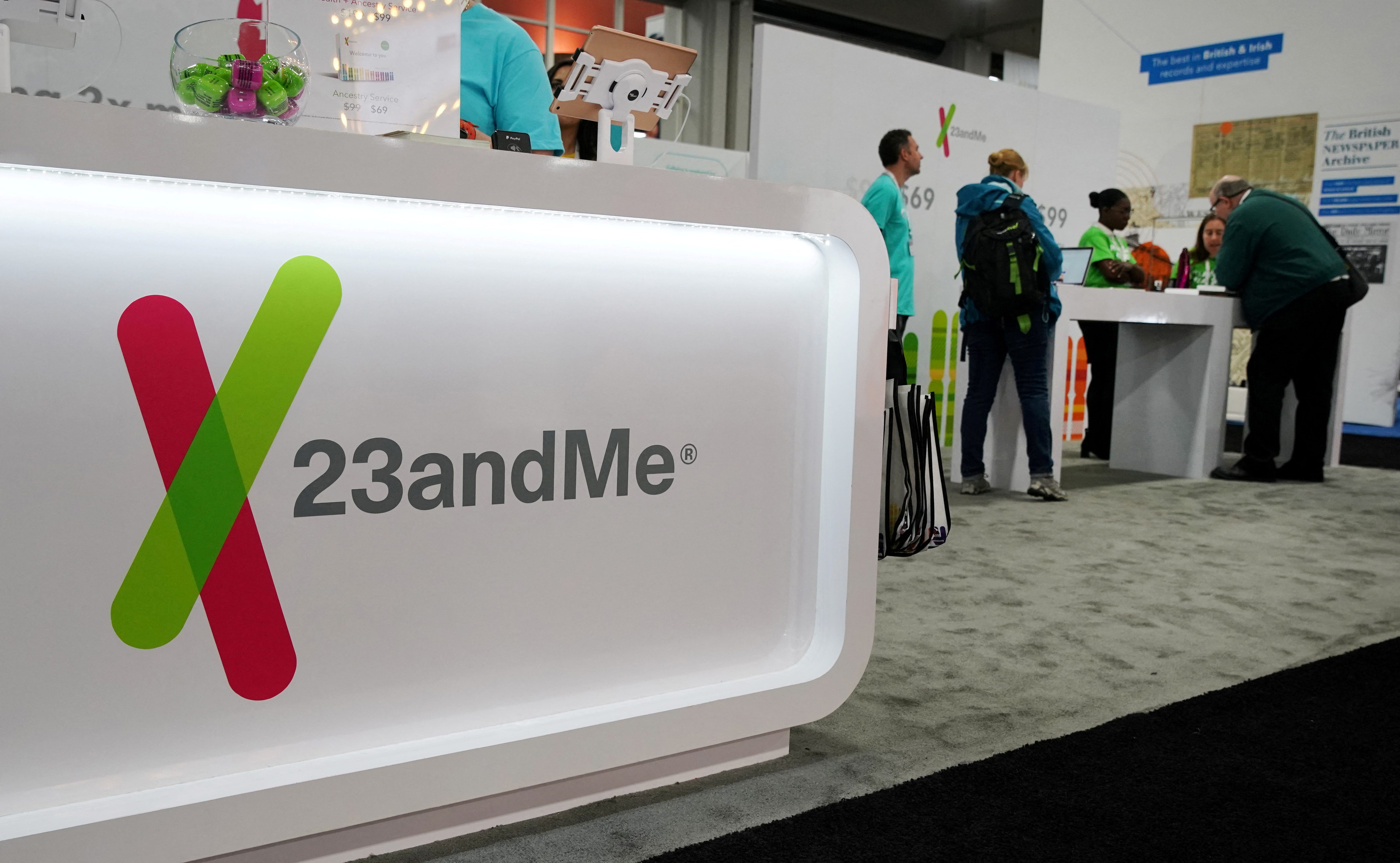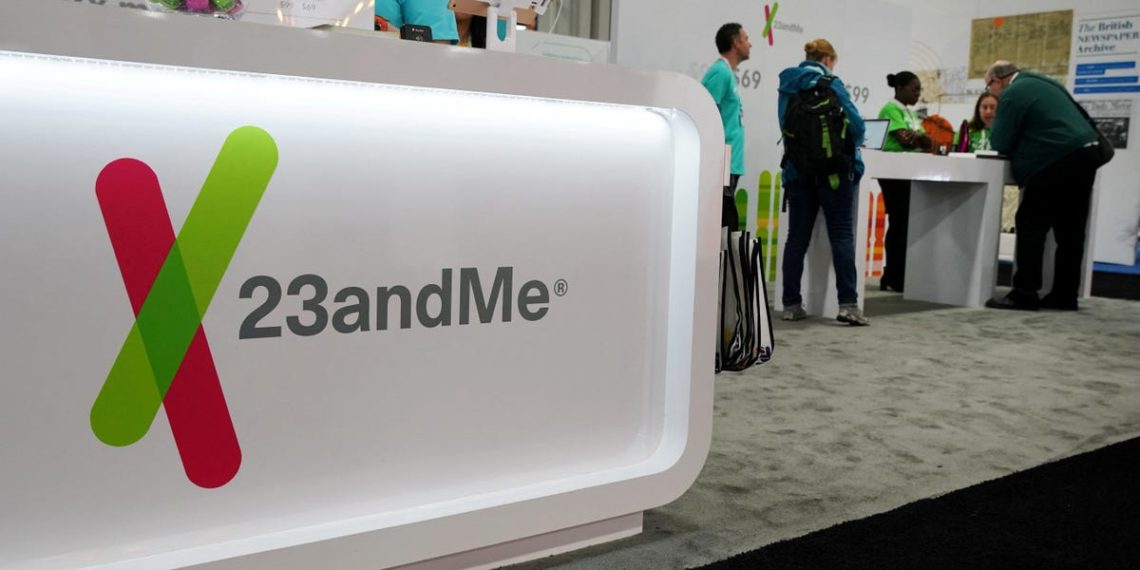
George Frey/REUTERS
Your 23andMe data is getting a new owner — so what are your options moving forward?
The DNA testing company announced on Monday that its assets are being acquired by Regeneron Pharmaceuticals. The sale renewed concerns from some customers online about their data and how its new owner plans to use it.
As part of the court-supervised sale, Regeneron agreed to comply with the current privacy policies and terms of services in effect and maintain “critical protections around customer privacy, choice and consent with respect to their genetic data,” Mark Jensen, member of the special committee of the board of directors of 23andMe, said in a press release.
Data hacks, a class action lawsuit, and leadership tension between former CEO Anne Wojcicki and the board left 23andMe’s fate in the balance as it searched for a buyer.
Wojcicki resigned as CEO and 23andMe filed for Chapter 11 bankruptcy in March, roughly six months after its board resigned, citing disagreements on the company’s strategic direction.
Regeneron, a publicly traded biotech firm, specializes in developing therapeutics based on antibodies — engineered proteins designed to combat viruses and other harmful invaders. It made headlines in 2020 for its experimental COVID-19 treatment that President Donald Trump lauded at the time.
Prior to the acquisition news, many 23andMe customers expressed concern over what a sale could mean for their user data. The director of cybersecurity at Electronic Frontier Foundation, a nonprofit focused on digital privacy, previously urged their 186,000 X followers to delete their data from 23andMe, with their post garnering more than 531,000 views in three days.
23andMe says the personal data it collects includes registration information like birth date, genetic information like a user’s genotype, sample information like saliva, and self-reported information.
Yet “beyond our contracted laboratory, with which we work to process a customer’s sample and deliver their results, customer information will not be shared with any other entity unless they provide us with consent to do so,” a 23andMe spokesperson previously told Business Insider.
The spokesperson said the company doesn’t share data with “employers, insurance companies, law enforcement agencies or any public databases.”
Users are still concerned, however, about their information.
“Data is data — once it’s out there, it’s very hard to control,” James Hazel, a biomedical researcher, previously told Business Insider.
How to ask 23andMe to delete your data
Users who want their personal information removed from 23andMe can opt out in the “23andMe Data” section in Account Settings. But 23andMe says it is legally required to retain some information.
“While we will delete the majority of your Personal Information, we are required to retain some information to comply with our legal obligation,” the company’s website says.
“23andMe and/or our contracted genotyping laboratory will retain your Genetic Information, date of birth, and sex as required for compliance with applicable legal obligations… even if you chose to delete your account,” the company’s privacy statement says.
The privacy statement says 23andMe will also retain some information associated with user accounts, like email addresses.
For users who participated in 23andMe Research, their genetic data and self-reported information won’t be used in future research projects.
“Customers always have the option to delete their account at any time, and once the request is confirmed, we will immediately and automatically begin the deletion process,” the spokesperson said. “Deleting an account and associated data will permanently delete the data associated with all profiles within the account. If a customer asks us to store their genetic samples, they will be discarded.”
The post Your 23andMe data is getting a new owner. Here’s how to delete your account. appeared first on Business Insider.




